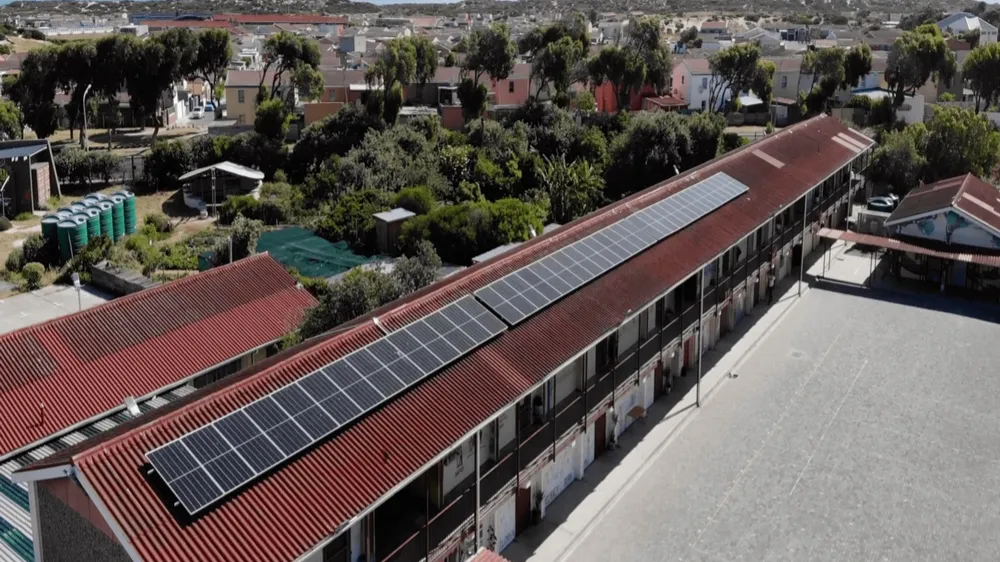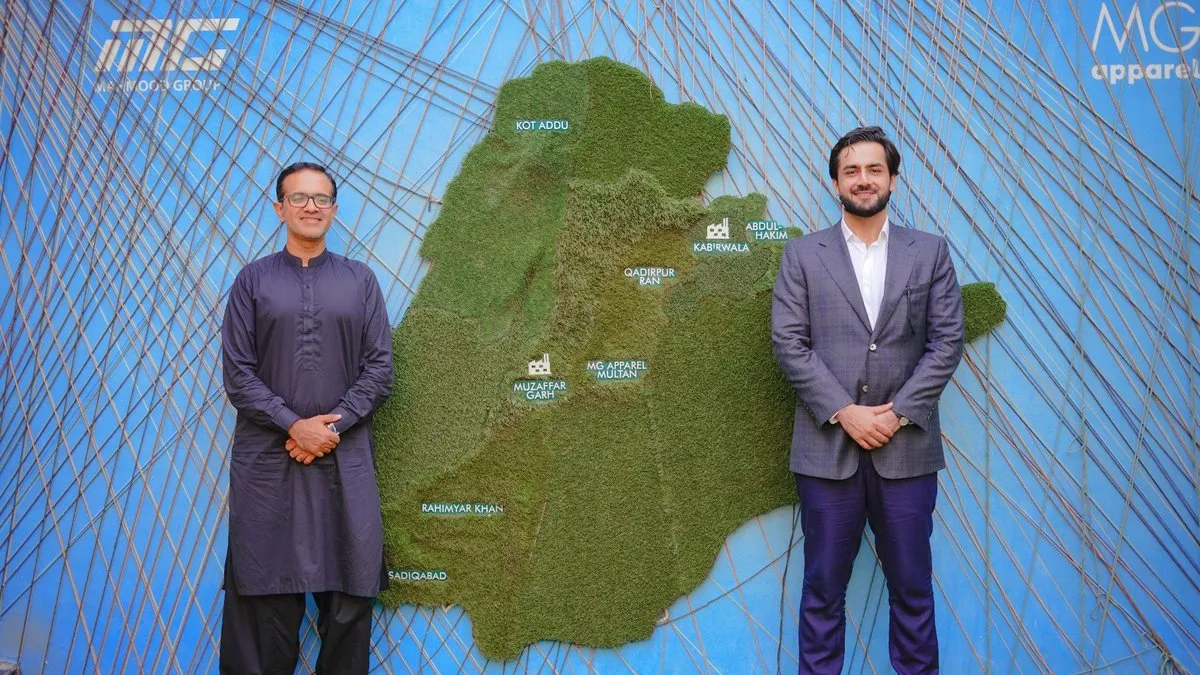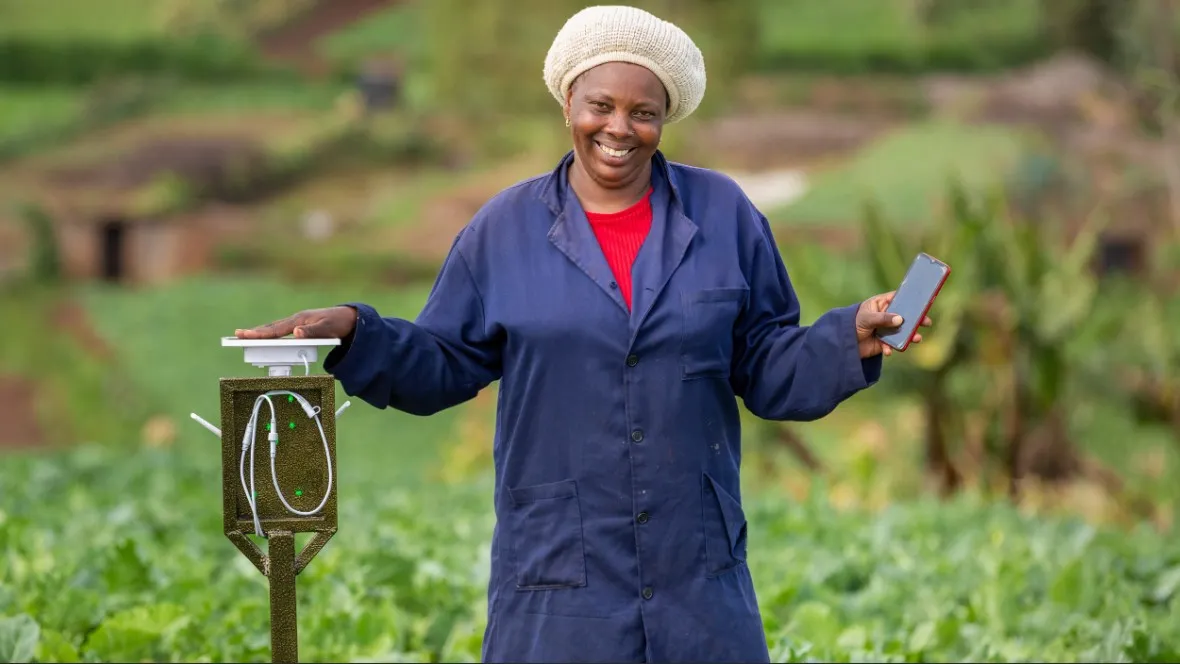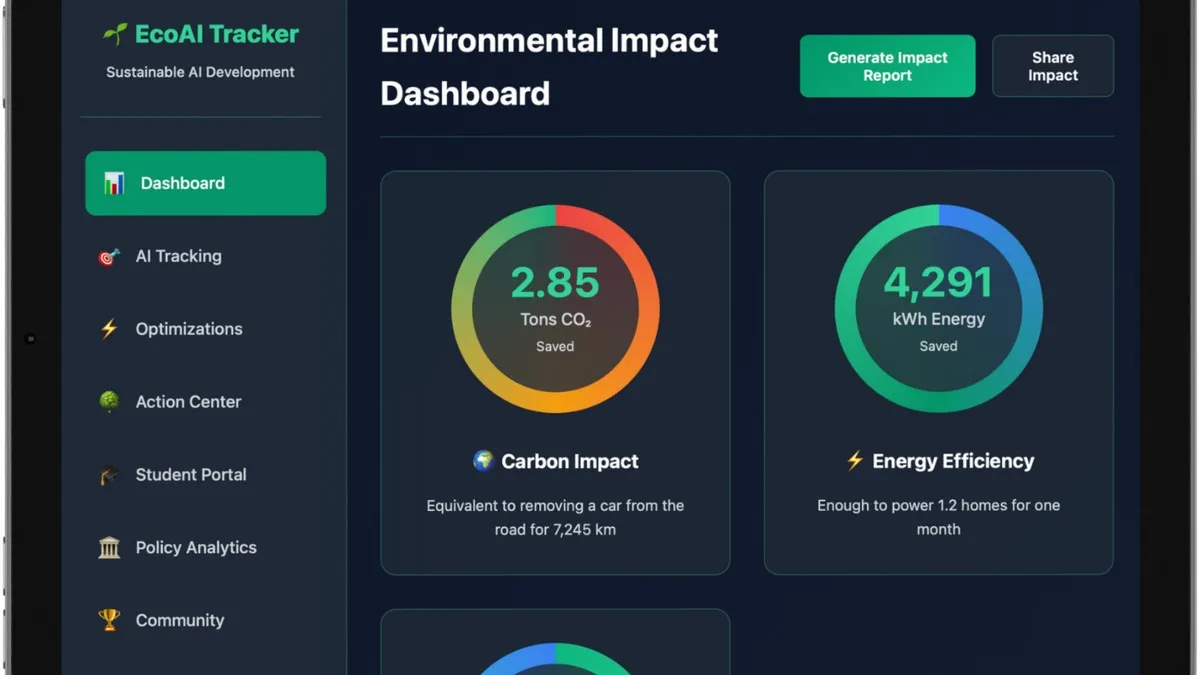
Header image credit: Reyna Ubeda/ITU
From decarbonizing energy systems to greening AI and empowering climate-smart agriculture, innovators are proving how digital technologies can help address climate change.
Cutting the world’s greenhouse gas emissions to net zero demands ambitious solutions with measurable results.
The Green Digital Action track at COP30, the United Nations climate change conference in Belém, Brazil, gathers governments, companies, and technical experts to explore how the global tech sector can deliver real and enduring climate gains.
Two global competitions organized by the International Telecommunication Union (ITU) have put the spotlight on winning innovations using data, artificial intelligence (AI), and verification tools to boost efficiency and lower environmental impact both within the digital sector and beyond.
The latest AI for Climate Innovation Factory heard pitches from start-ups on AI solutions to measure climate impact and boost efficiency. ITU began the Innovation Factory pitching platform in 2020 and launched the annual climate edition in 2023.
ITU’s latest AI Environmental Footprint Hackathon, meanwhile, challenged developers to design solutions that make AI itself more sustainable.
Start-ups delivering key data
Recognized through ITU’s AI for Climate Innovation Factory, these three start-ups show how digital and AI-driven tools are advancing climate action across energy, industry, and agriculture.
Enerlink: Monetizing verified clean energy impact
Winning start-up Enerlink helps renewable energy developers measure, verify, and monetize the environmental value of their projects.
“We’re building the digital rails for clean energy finance – transforming trustworthy data into faster, fairer capital flows that empower everyone to participate in the energy transition,” said Marco Funk, CEO of Enerlink.
Using verified energy data, the platform calculates the emission reductions generated by clean-power systems and issues Decarb-certified Emission Reductions that can be traded, retired, or held as carbon assets.

At Rocklands School in Mitchells Plain, South Africa, Enerlink’s digital platform certifies the impact of a 20 kW solar system installed under the Smart Schools initiative. In just over three years, the project has reduced 28.7 tons of CO₂ emissions, ensuring classrooms stay powered during blackouts while cutting electricity costs by 20 per cent.
Ahya: Accelerating AI-powered net-zero for the Middle East and Pakistan
Ahya provides AI-powered tools that help organizations measure and reduce their carbon footprint with precision. Its platform, AhyaOS, enables accurate measurement, analysis, reduction, and reporting of greenhouse gas (GHG) emissions against global and regional targets.
Operating across Saudi Arabia, the United Arab Emirates, and Pakistan, Ahya supports more than 250 climate projects and manages over 25 million tonnes of emissions under management. Ahya.ai aims to reduce 2 per cent of annual emissions in one of the most climate-vulnerable regions of the Global South.
“We envision a future for the Middle East and Pakistan where sustainability becomes a driver of innovation and competitive advantage, helping governments and enterprises unlock measurable value and economic growth,” says Salaal Hasan, Founder & CEO, Ahya. “We turn the Global South’s climate ambitions into a source of lasting growth by supporting organizations in reducing their financing costs, commanding competitive pricing, and enhancing value creation.”

Ahya has helped various partners improve their carbon data accuracy and streamline their sustainability reporting, enabling Pakistan’s MG Apparel, for example, to “integrate sustainability into its business strategy,” said Anees Khawaja, CEO of MG Apparel.
Farmer Lifeline Technologies: AI to support resilient, low-emission agriculture
In Kenya, Farmer Lifeline Technologies is using AI to protect crops, improve yields, and lower the agriculture sector’s environmental footprint.

Founded by Esther Kimani, the company’s devices detect pests and plant diseases early, preventing crop loss and reducing emissions linked to overuse of fertilizers and pesticides. The initiative has reached more than 42,000 smallholder farmers, 65 per cent of them women, and has enabled detection of over 1.4 million cases of pests and disease.
Farmer Lifeline aims to expand to 300,000 farmers by year-end, supporting livelihoods while contributing to Kenya’s national climate goals.
Developer tools for sustainable AI
The AI Environmental Footprint Hackathon tackled the growing energy and water consumption of AI. Winning solutions demonstrate how data-driven innovation can advance viable climate action.

GreenMind: Making every query count
The winning team created SumEarth.AI, a platform that tracks the carbon, energy, and water footprint of AI use.
“We believe that true sustainability begins with conscious choices — by making the invisible impact of AI visible, we can build smarter AI that’s a better sum for Earth,” said Vishal Jain, Founder of SumEarth.AI
By revealing the environmental cost of each query and recommending reductions, GreenMind promotes transparency and accountability in digital systems.

Standardizing Energy Models
The second-place winners built a framework to model energy consumption in large-scale AI training, enabling developers to forecast and minimize resource use over time.
EcoAI Tracker
The third-place innovators designed a real-time dashboard that monitors energy and water usage in data centres, helping operators optimize workloads and reduce emissions.

Shaping solutions beyond COP30
The AI innovation challenges also capped off the establishment of a new Green Digital Action Hub in Brazil as a legacy of COP30.
Learn more about the Green Digital Action initiative
Learn more about the AI Environmental Footprint Hackathon
Watch AI for Climate Innovation Factory 2025 live pitching sessions:
From left to right: Marco Funk, CEO, Enerlink; Seizo Onoe, Director of the ITU Telecommunication Standardization Bureau (TSB); Salaal Hasan, Founder & CEO, Ahya; and Thomas Basikolo, Programme Coordinator, TSB


